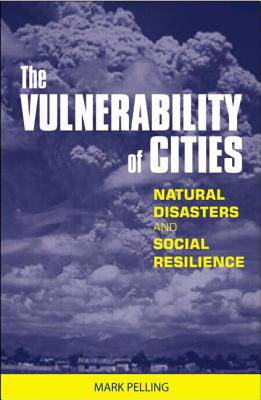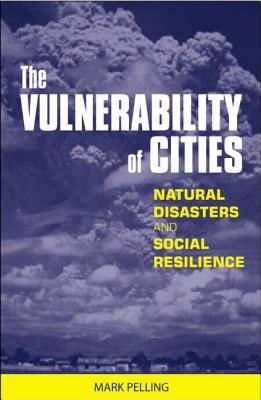
- Afhalen na 1 uur in een winkel met voorraad
- Gratis thuislevering in België vanaf € 30
- Ruim aanbod met 7 miljoen producten
- Afhalen na 1 uur in een winkel met voorraad
- Gratis thuislevering in België vanaf € 30
- Ruim aanbod met 7 miljoen producten
Omschrijving
When disaster strikes in cities the effects can be catastrophic compared to other environments. But what factors actually determine the vulnerability or resilience of cities? The Vulnerability of Cities fills a vital gap in disaster studies by examining the too-often overlooked impact of disasters on cities, the conditions leading to high losses from urban disasters and why some households and communities withstand disaster more effectively than others.
Mark Pelling takes a fresh look at the literature on disasters and urbanization in light of recent catastrophes. He presents three detailed studies of cities in the global South, drawn from countries with contrasting political and developmental contexts: Bridgetown, Barbados - a liberal democracy; Georgetown, Guyana - a post socialist-state; and Santo Domingo, Dominican Republic - an authoritarian state in democratic transition.
This book demonstrates that strengthening local capacity - through appropriate housing, disaster-preparedness, infrastructure and livelihoods - is crucial to improving civic resilience to disasters. Equally important are strong partnerships between local community-based organizations, external non-governmental and governmental organizations, public and private sectors and between city and national government. The author highlights and discusses these best practices for handling urban disasters.
With rapid urbanization across the globe, this book is a must-read for professionals, policy-makers, students and researchers in disaster management, urban development and planning, transport planning, architecture, social studies and earth sciences.
Specificaties
Betrokkenen
- Auteur(s):
- Uitgeverij:
Inhoud
- Aantal bladzijden:
- 224
- Taal:
- Engels
Eigenschappen
- Productcode (EAN):
- 9781853838309
- Verschijningsdatum:
- 1/03/2003
- Uitvoering:
- Paperback
- Formaat:
- Trade paperback (VS)
- Afmetingen:
- 153 mm x 237 mm
- Gewicht:
- 371 g

Alleen bij Standaard Boekhandel
Beoordelingen
We publiceren alleen reviews die voldoen aan de voorwaarden voor reviews. Bekijk onze voorwaarden voor reviews.











